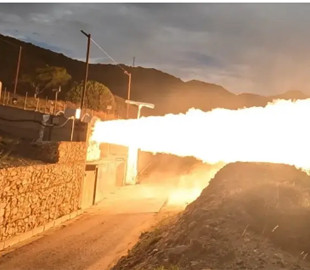
Europe's Vega C launch vehicle is preparing to resume flight in late November after a nearly two-year hiatus caused by a failed launch in December 2022. The upgraded Zefiro-40 engine, which is used in the second stage of the rocket, successfully passed the second test, confirming the elimination of defects found during previous launches.
After a failed launch in 2022, prime contractor Avio made changes to the nozzle design of the Zefiro-40 engine, which had previously failed due to material defects. The first test of the upgraded engine took place in May 2023, during which the Zefiro-40 worked for 94 seconds. The second test, which was conducted at a lower pressure, increased engine run time, which was an important step in resuming Vega C flights.
200% Deposit Bonus up to €3,000 180% First Deposit Bonus up to $20,000The European Space Agency (ESA) has confirmed that the rocket is ready to return to the spaceport, and the first launch after the hiatus will take place at the end of November. During this mission, Vega C will launch the Sentinel-1°C satellite, which is part of theCopernicusEarth observation program. This satellite will provide detailed monitoring of the planet's surface, allowing for improved environmental monitoring and emergency response.
Vega C's return to the market is accompanied by important changes in operational responsibility for the program. Arianespace, which managed the launch of the rockets, is gradually handing over functions to Avio, the rocket's manufacturer. The first five missions planned until 2025 will be carried out by Arianespace, but after that all operations will come under the full control of Avio. This poses a risk for Avio, as a change of operator would require customer approval, which could lead to the loss of market share to competition.
Resuming Vega C flights is an important milestone for the European space industry, as the rocket is set to become a key launch vehicle small and medium-sized satellites for the coming years. The successful testing of the Zefiro-40 engine and the planned missions should restore confidence in the rocket after previous failures.

